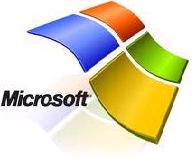Antitrust
Microsoft antitrust agreement spurred innovation, U.S. says
 Microsoft Corp.'s nine-year-old antitrust agreement with the U.S. Justice Department, set to expire today, permanently changed the software marketplace, making it more open, fair and innovative, the agency said.
Microsoft Corp.'s nine-year-old antitrust agreement with the U.S. Justice Department, set to expire today, permanently changed the software marketplace, making it more open, fair and innovative, the agency said.
The final judgment in the Microsoft case, in effect since 2002, prevented the company from using its monopoly Windows operating system for personal computing to quash competition, the department said yesterday in a statement.
The court's decree "helped create competitive conditions that enabled new kinds of products, such as cloud computing services and mobile devices, to develop as potential platform threats to the Windows desktop operating system," the department said.
The Justice Department, joined by 19 states and the District of Columbia, sued Microsoft in 1998, alleging the company unlawfully protected its Windows monopoly by keeping computer makers from promoting browsers that competed with Microsoft's Internet Explorer.
The government contended Microsoft hindered access to the Netscape Navigator browser because its Java programming language let programmers write applications that ran on any operating system, not just Windows.
"Microsoft got into antitrust trouble because it fell behind as an innovator and then tried to catch up by flexing its Windows monopoly rather than competing on the merits," said Andy Gavil, an antitrust professor at Howard University Law School in Washington. "It did that most extremely with Internet browsers and media players."
New software
The settlement protected development and distribution of new software and barred Microsoft from continuing the behavior that triggered the antitrust lawsuit.
"Our experience has changed us and shaped how we view our responsibility to the industry," Microsoft spokesman Kevin Kutz said in an e-mailed statement. "We are pleased to bring this matter to successful resolution."
Microsoft submitted to court oversight of its practices under a decree issued by U.S. District judge Colleen Kollar- Kotelly. The supervision included periodic reviews to ensure the company complied with terms of the settlement to give computer makers freedom to promote rival products.
Harry First, a professor at New York University School of Law in Manhattan, said he questions how much was accomplished.
Market share
"Everything that was done didn't really disrupt Microsoft's position," he said. "It's still a Windows world and Internet Explorer still has a major share of the browser market."
Internet Explorer has 55% of the browser market, while Mozilla's Firefox has 22%, according to research firm Netmarketshare's website. Google Inc. Chrome has 12% and Apple Inc.'s Safari has 7%, Netmarketshare reports.
Still, Kollar-Kotelly said at the last oversight hearing on April 27 that the compliance committee had worked well and could be used as a model for cases in the future.
The European Commission accused Microsoft in 2004 of abusing its dominant position by deliberately restricting the ability of non-Microsoft software on larger computers to work with its Windows operating system. Microsoft's bundling of the media player with Windows was also deemed unfair by the Commission, which fined the company a record 497m euros ($706m), ordered it to share secret programming data with competitors and offer a version of Windows without a music and video player.
"The most important thing about the case was that it put Microsoft under incredible scrutiny for how it was going to treat firms coming to life around the browser," said Timothy Wu, an information industries scholar from Columbia University who is on leave to advise the U.S. Federal Trade Commission.
Wu said the antitrust case helped Internet companies such as Google and Facebook Inc. flourish, while products such as WordPerfect and Lotus 1-2-3 software lost momentum due to Microsoft's dominance.
The case is U.S. v. Microsoft, 98-cv-01232, U.S. District Court, District of Columbia (Washington).
(Published by Bloomberg - May 12, 2011)